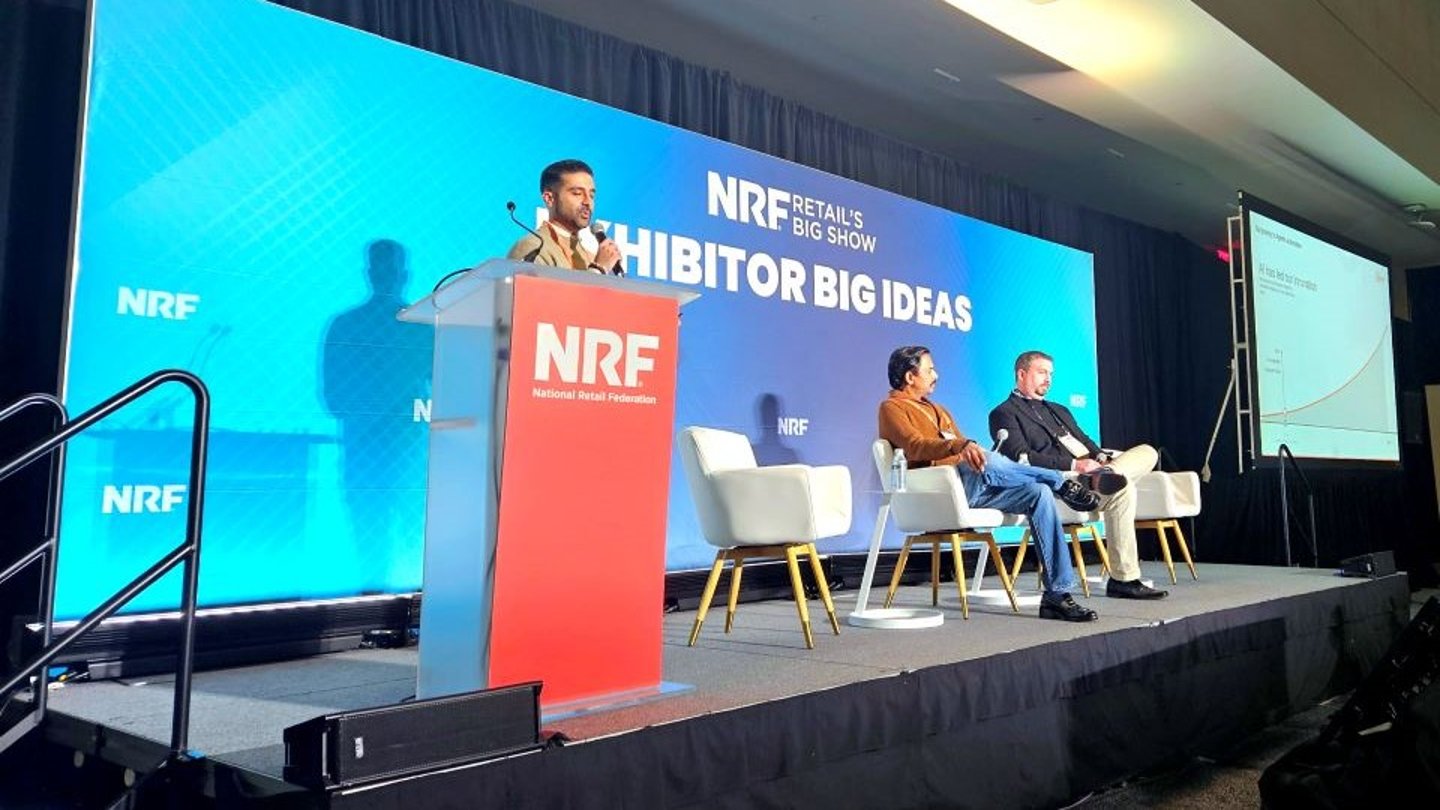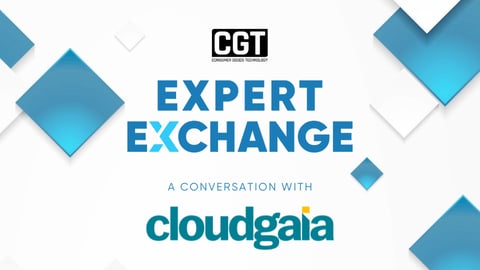Tapestry and PepsiCo Talk Agentic AI and Enterprise Automations
Time is money, according to PepsiCo’s data automation manager Mark Thylstrup, and it’s precisely why agentic AI-driven automations are set to disrupt CPG business operations, further reducing manual efforts by relying more on AI agents and cutting back on human validation.
During NRF’s Big Show, Thylstrup and Karthik Ramakrishan, director of planning systems and RPA at Tapestry — which includes such brands as Coach New York, Kate Spade New York, and Stuart Weitzman — shared the benefits of enterprise automation programs and how, eventually, integrating agentic AI will eliminate mundane, redundant tasks, reduce costs, and give employees more time for value-added tasks.
Current use cases at Tapestry include automation within purchase orders. Instead of having employees manually upload data into an Excel spreadsheet, the company has been alleviating those efforts through automation capabilities from UiPath. Additionally, within operations for controllers, automation ensures there are no phantom transactions or incorrect numbers when reconciling information between two different systems.
At PepsiCo, Thylstrup said automation has helped streamline onboarding efforts for contractors. It used to be a manual effort that required 10-15 employees to support it — and still, contractors would come in and be locked out.
“They had no ability to do anything, and our companies were paying money for them to sit on the bench,” said Thylstrup. In response, the company automated the process to be able to see when these contractors came in to get them immediate access.
Getting Into More Advanced AI
As the promise of agentic AI grows closer, CPG companies are still having to navigate the challenges that come with emerging technology that might have wide use-case potential but only experimental implementations thus far.
Tapestry is looking to evolve data within its organization as part of these efforts, separating it into either private or public pools to protect sensitive data while allowing employees to easily access public information through form auto-completes and AI-driven chat responses.
The company looks to better structure its data within AI models so the technology can understand context around sales, inventory orders, traffic, corporate hierarchy, etc. Its work in a related pilot is about 90% complete, said Ramakrishan, with an expected production rollout in January.
“The goal is you can ask anybody in the company, “What is the sales of this product last week?” or “How many people visited my Soho store for a Coach purse last week?” or “Compare the sales of Chicago and New York for women's bags.” So you can ask questions in any combination and it would answer — but it has been a battle with a lot of struggles.”
Also read: Smart Tags to Brain-Machine Interfaces: Gartner Predicts Top Strategic Tech Trends for 2025
The biggest challenge, he reported, is that agentic AI models need a space in which brands can teach — not necessarily train — in a low-effort, non-time-intensive way. Otherwise, prompts return incorrect information because the model doesn’t understand the context around the inquiries submitted.
Ramakrishan has been exploring several types of agentic AI architecture, finally having a recent breakthrough with Anthropic’s Claude 3.5 Sonnet V2, which didn't have the reasoning limitations other models had. Finding the right solution was a balance between speed, accuracy, and cost, he said.
"If you choose a model that's not smart enough, you'll encounter a lot of issues. We've experimented with so many models, and while the success was increasing, it was not there yet," said Ramakrishan.
Building in Governance Strategies
As with any AI discussion, panelists emphasized the importance of building out a strong foundation before moving on to implementation.
“It was shocking how many people are going out there using ChatGPT, potentially giving away secure information,” said Thylstrup, also speaking on the necessity to get a foundation of clean data settled first.
“Garbage in, garbage out,” he said. “We really, really have to take a step back before we get right in there and say, ‘Okay, we're going to train this model, we're going to do all this stuff.’ Because we need to be able to have clean, good data to be able to feed the model, to be able to train, or be able to produce good automation.”







